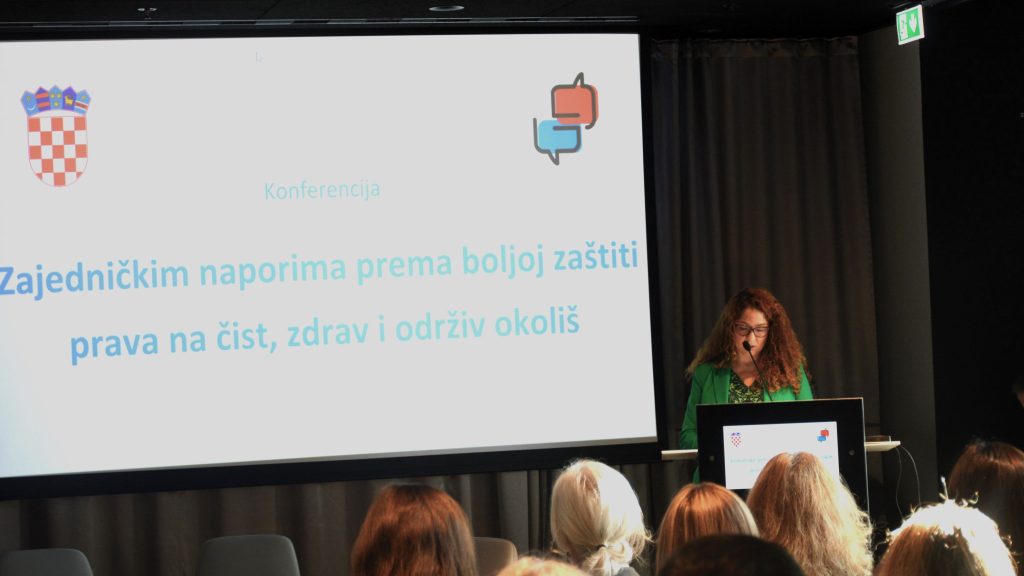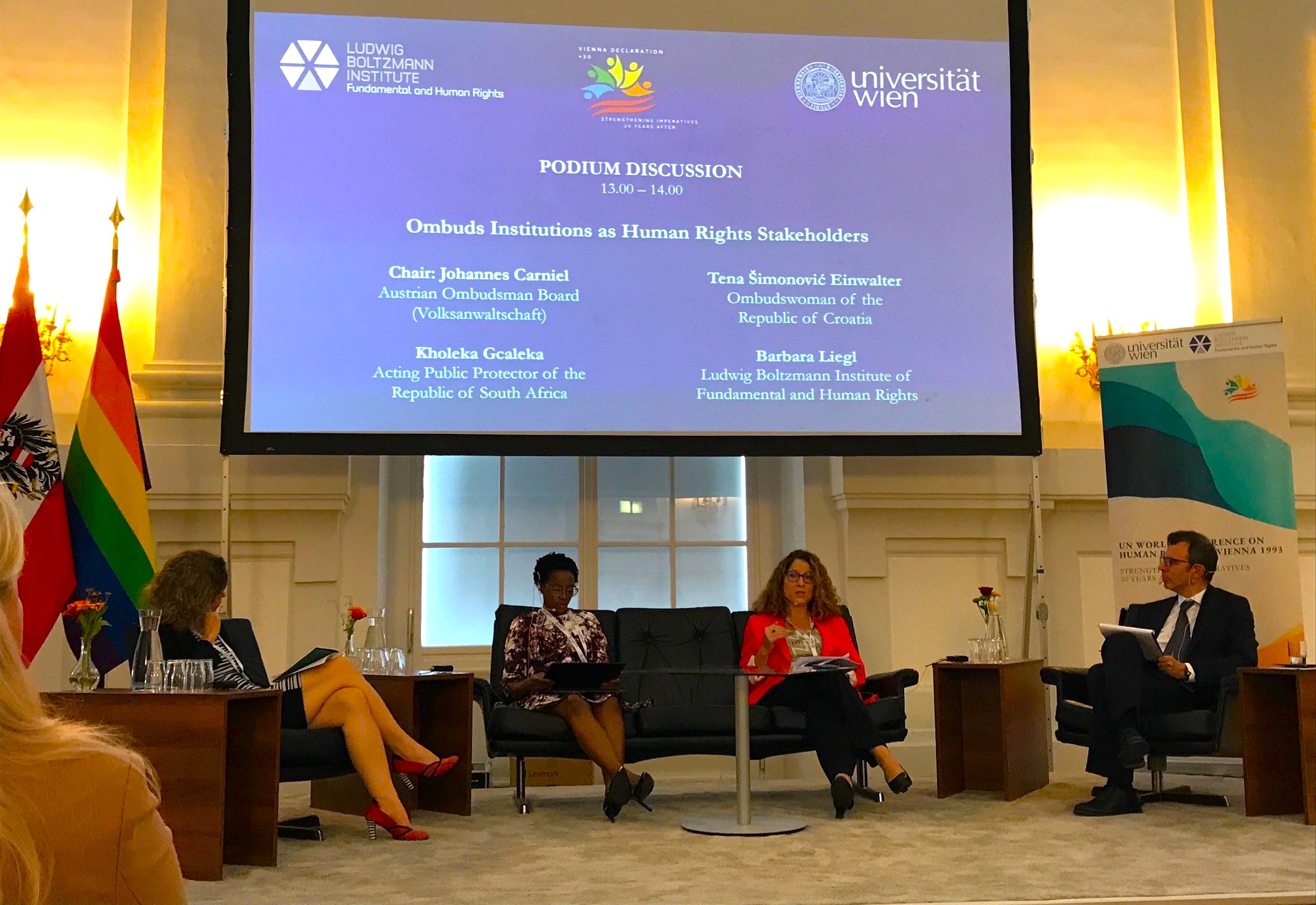Ombudswoman Tena Šimonović Einwalter participated in the international conference held in Vienna on 28–29 September 2023, marking the thirtieth anniversary of the United Nations World Conference on Human Rights, which took place in Vienna in 1993 and was particularly significant for the development of the human rights protection system. The conference resulted in the Vienna Declaration and Programme of Action, which serve as joint guidelines for strengthening human rights worldwide.
The event was jointly organised by the University of Vienna and the Ludwig Boltzmann Institute of Human Rights, in cooperation with the Austrian Federal Ministry for European and International Affairs and the Austrian Federal Ministry of Justice, in partnership with the EU Agency for Fundamental Rights (FRA) and numerous universities and institutions. It provided an opportunity to assess the extent to which the goals set out in the Declaration have been achieved globally, regionally, and nationally, and to examine the obstacles citizens face in realising their human rights and fundamental freedoms.
The Ombudswoman of the Republic of Croatia, Tena Šimonović Einwalter, was invited as one of only two ombudspersons, together with the Ombudswoman of South Africa, to speak on the panel titled “Ombudsman Institutions as Human Rights Actors.” Traditionally, ombudsman institutions have been engaged with the legality and regularity of the work of public authorities, which is one of the five mandates of the Ombudswoman, and were not always considered institutions for the protection of human rights.
Ombudswoman Šimonović Einwalter explained that the situation and expectations globally have evolved, and today, even those institutions with a purely ombudsman mandate are expected to be involved in human rights protection. This is especially clear in the case of institutions, such as the Office of the Ombudswoman, which are explicitly mandated by law to protect human rights and which, in addition to the ombudsman mandate, also serve as national human rights institutions. She further highlighted that the Charter of Fundamental Rights of the European Union explicitly recognises the right to good administration as a human right.
The panel emphasised the role played by ombudsman institutions, noting that they serve as a “bridge” between the international level and citizens’ everyday experiences, contributing to communication between public administration and the public and facilitating the unobstructed realisation of rights. In doing so, they help resolve these issues at the local, regional, and national levels—where solutions are most effective—before matters reach the international level.
For ombudsman institutions to successfully fulfil these tasks, it is essential that the necessary conditions are in place—specifically, that they are strong institutions with robust powers and sufficient resources to carry out their work.





